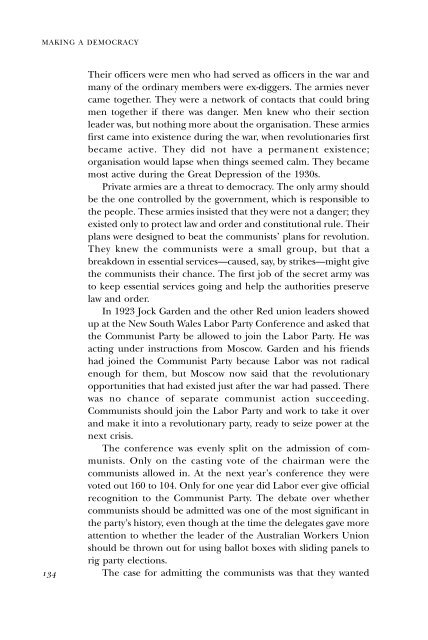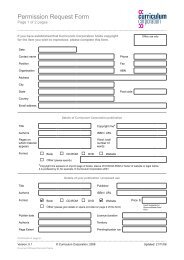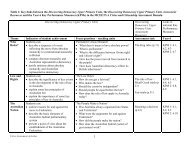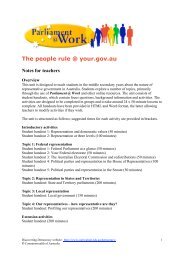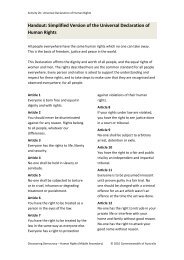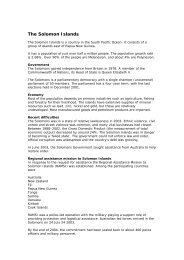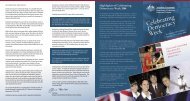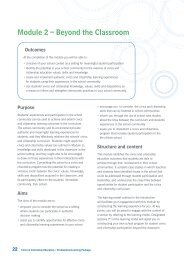Australia's Democracy pp 128-140 - Civics and Citizenship Education
Australia's Democracy pp 128-140 - Civics and Citizenship Education
Australia's Democracy pp 128-140 - Civics and Citizenship Education
Create successful ePaper yourself
Turn your PDF publications into a flip-book with our unique Google optimized e-Paper software.
MAKING A DEMOCRACY<br />
134<br />
Their officers were men who had served as officers in the war <strong>and</strong><br />
many of the ordinary members were ex-diggers. The armies never<br />
came together. They were a network of contacts that could bring<br />
men together if there was danger. Men knew who their section<br />
leader was, but nothing more about the organisation. These armies<br />
first came into existence during the war, when revolutionaries first<br />
became active. They did not have a permanent existence;<br />
organisation would lapse when things seemed calm. They became<br />
most active during the Great Depression of the 1930s.<br />
Private armies are a threat to democracy. The only army should<br />
be the one controlled by the government, which is responsible to<br />
the people. These armies insisted that they were not a danger; they<br />
existed only to protect law <strong>and</strong> order <strong>and</strong> constitutional rule. Their<br />
plans were designed to beat the communists’ plans for revolution.<br />
They knew the communists were a small group, but that a<br />
breakdown in essential services—caused, say, by strikes—might give<br />
the communists their chance. The first job of the secret army was<br />
to keep essential services going <strong>and</strong> help the authorities preserve<br />
law <strong>and</strong> order.<br />
In 1923 Jock Garden <strong>and</strong> the other Red union leaders showed<br />
up at the New South Wales Labor Party Conference <strong>and</strong> asked that<br />
the Communist Party be allowed to join the Labor Party. He was<br />
acting under instructions from Moscow. Garden <strong>and</strong> his friends<br />
had joined the Communist Party because Labor was not radical<br />
enough for them, but Moscow now said that the revolutionary<br />
o<strong>pp</strong>ortunities that had existed just after the war had passed. There<br />
was no chance of separate communist action succeeding.<br />
Communists should join the Labor Party <strong>and</strong> work to take it over<br />
<strong>and</strong> make it into a revolutionary party, ready to seize power at the<br />
next crisis.<br />
The conference was evenly split on the admission of communists.<br />
Only on the casting vote of the chairman were the<br />
communists allowed in. At the next year’s conference they were<br />
voted out 160 to 104. Only for one year did Labor ever give official<br />
recognition to the Communist Party. The debate over whether<br />
communists should be admitted was one of the most significant in<br />
the party’s history, even though at the time the delegates gave more<br />
attention to whether the leader of the Australian Workers Union<br />
should be thrown out for using ballot boxes with sliding panels to<br />
rig party elections.<br />
The case for admitting the communists was that they wanted


